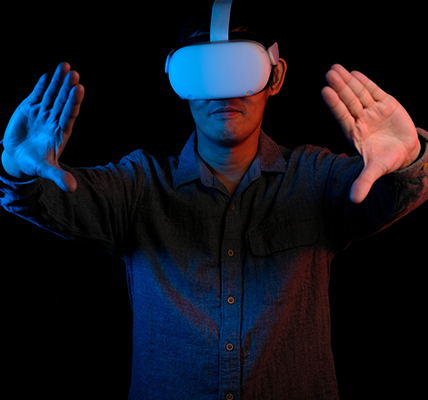Accessibility Evaluation
Given the rapid rate of technological change it is common for organizations to introduce products only to find, sometimes surprisingly that these products are inaccessible to specific groups of users due to insufficient accessibility evaluation. There is a broad range of consumer technologies that have been, and continue to be, inaccessible to blind and low-vision consumers specifically which reflects the inherent challenges of this issue.
Our belief at Charter Dynamics is that knowledge and information are the key to addressing the issue of inaccessibility. We partner with companies to conduct in-depth analyses to identify potential accessibility barriers for new, emerging, or even legacy products. We then provide a roadmap to organizations that describes, in detail, how to address the identified issues.
We have expertise in...
Heuristic evaluation
A heuristic evaluation is a type of usability inspection in which a small group of evaluators use defined criteria to assess the usability of a user interface. Unlike traditional usability testing, which focuses on assessing how well users can accomplish specific tasks, a heuristic evaluation is designed to identify potential problems with the overall design of the user interface.
Heuristic evaluations are typically conducted by expert evaluators who have significant experience with user interface design. As such, they are able to quickly identify issues that might not be evident to users during traditional usability testing and web accessibility evaluation. While heuristic evaluations can be useful in identifying potential problems with a user interface, they should not be used as the sole basis for making design decisions. Rather, they should be used in conjunction with other methods, such as user interviews and surveys, to get a complete picture of the user experience.
Scenario-based evaluation
A scenario-based user study is a type of user research that involves giving participants realistic scenarios and tasks to complete. This allows researchers to see how users interact with a product in a real-world setting and identify areas for improvement through accessibility assessment.
Scenario-based user studies can be conducted in person or online, and they can be customized to assess specific user needs. In addition to identifying areas for improvement, scenario-based user studies can also help researchers understand user motivations and behaviors. As a result, they are an essential tool for any team that is looking to create a great user experience.
Enactment
In a user enactment study, participants are asked to imagine themselves in a hypothetical situation and then asked to describe how they would act. This type of research is often used to explore how users might react to new technologies or products that are not yet available through set accessibility testing standards. By understanding how users think and behave in potential future scenarios, companies can better design products that meet their needs.
Enactment studies can also be used to evaluate the effectiveness of current products and to identify potential improvements. Ultimately, this type of research helps companies create better products and make more informed decisions about the future of their business.
Naturalistic studies
A naturalistic user study is a research method in which participants are observed in their natural environment. This type of study is used to examine how people interact with technology in their everyday lives. Naturalistic user studies can be used to investigate a wide range of topics, including how people use new technologies, how they perform tasks in new environments, and how they interact with others while using technology.
While this type of research has many advantages, it also presents some challenges. In particular, naturalistic user studies can be time-consuming and expensive to conduct. Furthermore, it can be difficult to control for all of the variables that may influence participants' behavior. Some areas such as website assessment can be easier to conduct, whereas others can bring more difficulties. Nevertheless, naturalistic user studies offer a valuable opportunity to learn about the ways that people use technology in their everyday lives.
Remote evaluation
There are many benefits to conducting web accessibility testing and user studies remotely. First, it allows organizations to reach a broader pool of potential participants, as individuals can participate from anywhere in the world. Second, remote user studies are often more cost-effective than in-person studies, as there is no need to cover travel expenses for participants.
Third, remote user studies can be conducted more quickly and flexibly than in-person studies, as they limit many common logistical hurdles. Lastly, remote user studies allow for more data to be collected from each participant, as researchers can observe users in their natural environment.
Why hire us?
User research and accessibility evaluation are critical for understanding how your target users interact with your product or service. Without these insights, it can be difficult to make key decisions about your product roadmap and marketing strategy.
At Charter Dynamics, we can help you to get the most out of your user research by providing expert analysis and guidance, so contact us today. We can also help you to design user research studies that are tailored to your specific needs and goals. In addition, we can provide support throughout the entire process, from data collection to report writing.
Clients
Great things happen when building long-lasting relationships. By now, you are hopefully impressed and dying to work with us.





